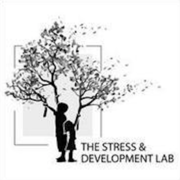
In a meta-analysis with over 100,000 participants published in Psychological Bulletin, Stress and Development Lab research demonstrates that experiencing adversity in childhood is associated with accelerated biological aging across three separate metrics of aging - the timing of puberty, indicators of cellular aging, as well as patterns of brain development. Importantly, however, these effects were not observed for all types of early adversity. Only exposure to violence or experiences that involve a significant threat to the child were associated with this acceleration in the aging process. Experiences involving deprivation, like neglect, or poverty did not predict this acceleration. These results suggest that exposure to violence in childhood accelerates biological aging in multiple ways - leading to an earlier onset of puberty, advanced cellular aging relative to chronological age, and more rapid brain development, particularly in regions involved in processing social and emotional information. More broadly, these findings add to a growing body of work suggesting that adverse early environmental experiences can become biologically embedded, altering brain and biological development in ways that ultimately contribute to poor health outcomes later in life.There are clear practical implications of these findings. They suggest that screening for adversity may be warranted in children who present with precocious puberty in routine pediatric practice, to identify children who may be particularly vulnerable for the early onset of physical and mental health problems. They also highlight the importance of developing early interventions to reverse the effects of trauma on the aging process. A key question is whether evidence-based psychosocial interventions for treating the mental health consequences of early-life adversity—like CBT—can also slow down this acceleration in aging.
These findings have been covered by CNN, The Guardian, and the Harvard Gazette.
